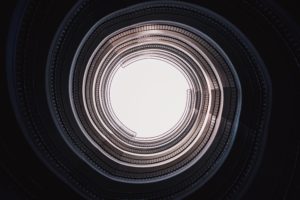The dilemma of choosing psychiatric meds is in some ways like the omnivore’s dilemma…
Yes, we all like to say people should be able to choose whether or not to take psychiatric drugs, and for the most part I say the same thing. It’s politically correct and choosing psychiatric meds for oneself sounds diplomatic, it sounds like offering people respect and self-determination, but is it really that simple anymore?
Now that psychiatric drugs, substances that are too dangerous to be sold over the counter, yet drugs that aren’t actually medicines for any biological illness or condition with any valid scientific basis, have created a worldwide health crisis, more than tripling disability rates in the past couple of decades, is it as simple as a personal choice? Public health standards (as poor as they are) in the United States acknowledge that we are affected by the behavior of others and the substances they use, with certain standards. For example, in the U.S, smoking is no longer allowed in public indoor spaces due to the health dangers of second hand smoke and drunk driving is illegal due to the risk it imposes on other drivers and pedestrians.
Psychiatric drugs, while currently posing as prescription medications (to treat illnesses that have not yet been proven to exist by any scientific test or biological markers) also affect others, not only the individual consuming them. Some of them cause dizziness, drowsiness and problems with motor coordination as well. For example, on the Stanford University medical website, they say “Depakote may cause drowsiness, dizziness, or blurred vision. Patients taking Depakote should not drive, use machinery, or do anything requiring mental alertness until the effects of this drug are known.” Also relevant, psychiatric drugs cause many cases of chronic disability and chronic poverty, which of course affects all of us financially and otherwise whether we have “chosen” to take them or not.
I don’t say any of this to scapegoat, blame, or otherwise insult those who are taking these substances for any reason, whether by force or choosing psychiatric meds or somewhere in the middle. Psychiatric drugs are harmful and we know that (the drugs companies themselves know that, which we see in their advertising), but this does not mean that people who take them, prescribe or advocate for them are bad or defective or anything else.
There is no choice, however, that we make for ourselves alone-absolutely none. Everything we do or don’t do affects the whole.
So when we talk about self-determination and personal decision choosing psychiatric meds, it is a nuanced conversation. If psych drugs were on sale at the drugstore next to homeopathic remedies, herbs, hugs and song circles, for the same price, we could talk about choice, public safety and social impact. I know that sounds extremely woo-woo, but even the idea that everything other than FDA approved drugs is witchcraft or New Age BS is one that has been sold to you by corporate media. I can’t think of anything more woo-woo than prescribing mysterious chemical concoctions (Depakote Ingredients (Depakote ER 250 and 500 mg tablets): sodium valproate, valproic acid, FD&C Blue No. 1, hypromellose, lactose, microcrystalline cellulose, polyethylene glycol, potassium sorbate, propylene glycol, silicon dioxide, titanium dioxide, and triacetin) for illnesses that have never been found to exist medically, yet requiring a doctors script and calling them medication. THAT my friends is witchcraft, but not in the good sense I have come to think of the (now reclaimed) term.
So how can we talk more honestly about choosing psychiatric meds? How can we include social responsibility on both sides of the equation? This includes social responsibility on the part of those presenting the “choice” (to vulnerable, suffering people) to offer other viable choices and make them accessible, affordable and socially acceptable (this responsibility falls largely on government and policy makers), and “choice” to take a drug that will not only affect you, your health and your personality, but everyone else you encounter and many people, plants, animals and ecosystems you will never encounter at all. There is no simplicity in saying, “it’s your choice” as if it’s all up to your individual ego to self-determine and affect you alone.
There is a choice, however, that taps into a larger field, one that chooses in a way that benefits the whole. We know when we are making those choices. There’s something about them that feels good, and actually simple. Those choices cannot be manipulated by advertisements or fraudulent “science.” The more we practice making those choices, the more easily they come to us, and the less need humanity will have for a “medicine” that fractures our personalities, ruins our health and destroys the planet.
Paradoxically, true Self-determination takes all things into account and acts from a place beyond the self. Ironically, psychiatry, which should be the the medicine FOR the psyche/soul, works against the Self by isolating it artificially from the interconnected web of reality, which results in irresponsible action when taken as a life path.

How does this relate to Harm Reduction? Aren’t there times when we need to isolate ourselves out and use psychiatry as a means to reduce even worse harm? This must be decided on a case by case basis. Harm reduction has its place as long as it doesn’t reduce us to fight or flight mode forever. I know very well the necessity of doing whatever it takes to get through the day or night sometimes. I’ve spent many years of my life living primarily in that mode. Yet building a life around sacrificing important parts of ourselves and choosing psychiatric meds for the sake of survival can ironically lead to more problems surviving.

By making choices from a larger field, beyond the self, we are guaranteed something even greater than survival-an interconnected, soulful journey, where we are part of something larger rather than always separate and acting out of “self” interest alone.

The individuals and families I work with are moving more and more into an expanded awareness of the “Self” in self-determination; it is inherent in aspiring to come off psych drugs, this desire to be more inclusive in our sense of self, less isolated, even though Psychiatry will tell us otherwise. Psychiatry might twist the facts, try to convince us that choosing psychiatric meds will fix us so we can participate better in society, but this is where we must not be sold. We must hold to our essential knowing of ourselves that can’t be broken or fixed, and that is so inherently connected to all of life, it finds strength and power in the collective field itself and overcomes oppression without excessive isolation of the self as a biochemical entity alone.
Teaching people how to move from chronic survival mode that psychiatry imposes, to a larger field where decisions can include other people, plants, animals, without sacrificing our health or life path, is the main focus of the book I am writing-Breaking Free From Psychiatric Drugs, with the help of my team and advisory board, backers, perk donors-and you! Please help us spread this message of interconnectedness and hope-before it’s too late.

Hi Chaya,
I just wanted to say hello. I enjoy reading your posts. I recently finished a documentary film, called Crazy about forced treatment, so I’m very interested in this particular post on choice + I see we both went to Hampshire! I hope we will have a chance to meet sometime.
Best,
Lise
Thanks. That’s awesome Lise. It would be great to check out your film. Are you still in MA?
It’s inspiring to see someone courageously address these issues and call us toward better choices, both for self-care and for overall protection.